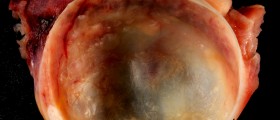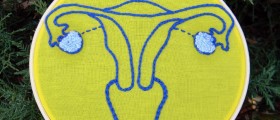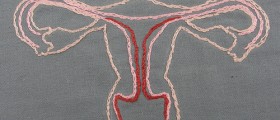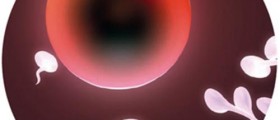
Ovarian cysts occur when hormones get out of balance and the normal process of preparing for conception goes awry. Many ovarian cysts, however, do not cause infertility. By far the most common form of ovarian cyst is a functional cyst. They are an accumulation of fluid around the developing egg. This kind of cyst occurs when there is too much follicle stimulating hormone (FSH) or the ovary is too sensitive to it. A functional cyst is normally about the size of a pea, but it can get as large as 3 to 4 inches (80 to 100 mm) across. Since functional cysts typically affect only one ovary at a time, they usually don't cause infertility.
Another common form of ovarian cyst is a chocolate cyst, so called because of its reddish-brown interior, colored by "old" blood. Chocolate cysts are due to endometriosis, the abnormal thickening of the lining of the uterus, which itself accounts for about 30 per cent of all cases of female infertility. Sometimes pieces of the uterus get torn off and lodge in the ovaries, before or after the onset of endometriosis. Chocolate cysts tend to persist. They interfere with ovulation, but like functional cysts, they do not necessarily cause infertility, since they usually only affect one ovary.
Although there are several other rarer kinds of ovarian cysts, the kind of ovarian cyst most often associated with infertility is polycystic ovaries. In this condition, hormonal imbalances keep the mature egg from ever getting released into the uterus. It stays in the ovary in its protective protein coat. On ultrasound, polycystic ovaries often look like "strings of pearls." Although polycystic ovaries are less able to ovulate, the real problems with fertility come from the more comprehensive hormonal imbalances associated with polycystic ovarian syndrome, or PCOS. In PCOS, even when ovulation is possible, there may be other barriers to receiving sperm through the cervix or implanting the egg in the lining of the uterus. PCOS involves ovarian cysts, but isn't just about ovarian cysts. Because PCOS involves hormone imbalances all over the body, it is the form of ovarian cyst most likely to cause infertility.















Your thoughts on this
Loading...